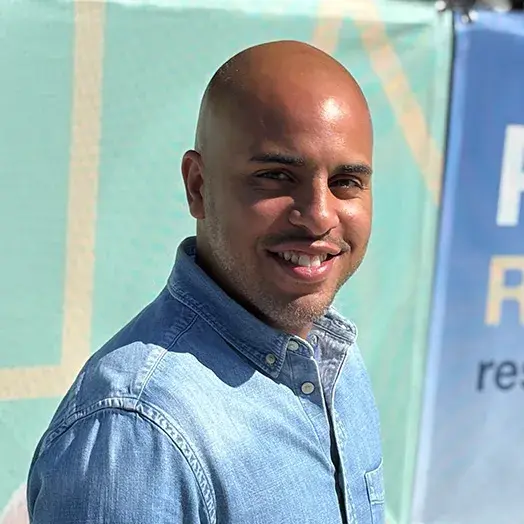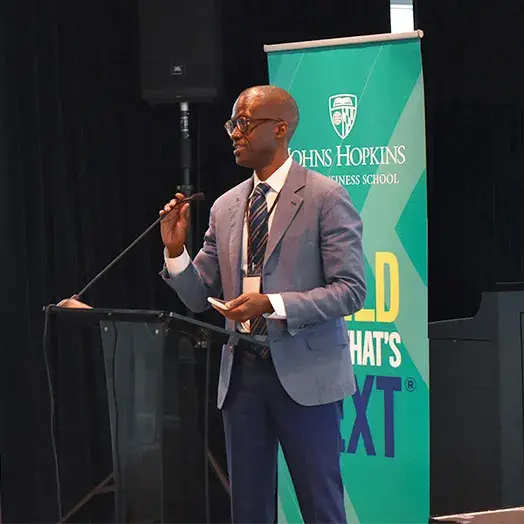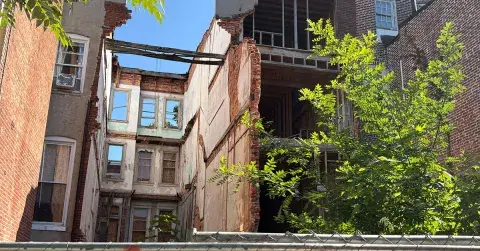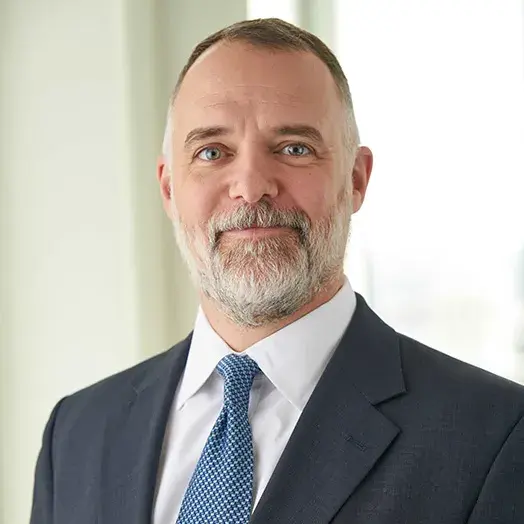Alex Aaron (Real Estate ’24), founder of Blank Slate Development, is rebuilding many of Baltimore’s long-vacant and neglected properties into vibrant communities through collaborative public-private partnerships and community input.

Rebuilding Baltimore’s forgotten neighborhoods for a better future
While vacant buildings and abandoned properties are often signs of a city in despair, Alex Aaron (Real Estate ’24) sees opportunities. As founder and CEO of Blank Slate Development, Aaron has spent the last decade converting long-neglected properties in Baltimore into vibrant communities. What started with flipping one house at a time has grown into a business managing multi-million-dollar redevelopment projects, transforming whole blocks into ambitious mixed-use properties rooted in community input.
Building communities
Blank Slate focuses exclusively on reimagining under-resourced neighborhoods and properties. “On average, the buildings we take on have been empty for 30 years,” says Aaron. “I wanted to roll up my sleeves and focus where others wouldn’t.”
Aaron is particularly proud to collaborate with MCB Real Estate on a project to convert a vacant daycare into a new 20,000-square-foot retail center. Before Blank Slate’s involvement, the dormant space at 600 West North Avenue had become a dumping ground and community nuisance as it passed from developer to developer, unable to make the site viable. Aaron’s breakthrough for the property was to recruit a grocery store to anchor a neighborhood that hadn’t seen a new supermarket in over 30 years. “It’s not about us deciding what’s best,” he said. “It’s about asking people on the ground what they want—and actually listening.”
Currently, the shopping center is in the early phases of construction with plans to open in 2027.
Aaron and his partners are also revitalizing the 2900 block of Parkwood Avenue, a street dotted with historic rowhomes, nearly half of them abandoned. With the help of city agencies and the neighborhood residents, Blank Slate plans to turn the block into a mixed-income community with homes for purchase and rental units. “Residents told me they wanted stability, but also balance, a mix that allows people to grow together,” he recalled. “We’re building a community where doctors, teachers, and working-class families can all live side by side.”
What to Read Next

business of health
Healthier cities are key to a healthier planet and healthier peopleLessons learned for building better cities
Sustainability and environmental impact are core principles of Aaron’s development philosophy, which he credits in part to his experience as a Master of Science in Real Estate student at Carey Business School. Carey’s real estate program incorporates planetary health concepts that consider how cities and human activity impact nature’s interconnected systems and human health. The real estate industry plays a key role in reducing the environmental impact of our built environment, from the design of cities to the materials used for construction and furnishings. Aaron says his company incorporates green practices in every project, including the use of energy-efficient appliances, improved insulation, and eco-friendly building materials. Landscaping, LED lighting, and tree planting also add long-term value to neighborhoods while reducing environmental impact.
“I've actually used the knowledge that I learned in my classes and now apply those principles to our development company,” Aaron says. “The skills that I learned from the classes I'm actually applying in real time in Baltimore. It's been incredible.”



